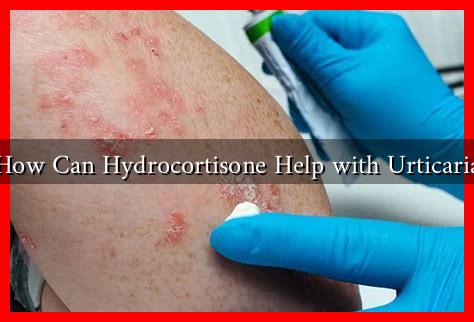-
Table of Contents
How Can Hydrocortisone Help with Urticaria?
Urticaria, commonly known as hives, is a skin condition characterized by raised, itchy welts that can appear anywhere on the body. It can be triggered by various factors, including allergens, stress, medications, and infections. For many individuals suffering from this condition, hydrocortisone emerges as a potential treatment option. This article explores how hydrocortisone can help manage urticaria, its mechanisms of action, and practical considerations for its use.
Understanding Urticaria
Urticaria is classified into two main types: acute and chronic. Acute urticaria lasts less than six weeks and is often linked to specific triggers, while chronic urticaria persists for six weeks or longer and may have no identifiable cause. The condition can significantly impact a person’s quality of life, leading to discomfort, sleep disturbances, and anxiety.
What is Hydrocortisone?
Hydrocortisone is a corticosteroid, a class of medications that mimic the effects of hormones produced by the adrenal glands. It is commonly used to reduce inflammation and suppress the immune response. Hydrocortisone is available in various forms, including topical creams, oral tablets, and injectable solutions.
How Hydrocortisone Works in Treating Urticaria
Hydrocortisone helps alleviate the symptoms of urticaria through several mechanisms:
- Anti-inflammatory Action: Hydrocortisone reduces inflammation by inhibiting the release of inflammatory mediators such as histamines and prostaglandins. This action helps to decrease swelling and redness associated with hives.
- Immune System Modulation: By suppressing the immune response, hydrocortisone can help prevent the overreaction of the body to allergens or irritants that trigger urticaria.
- Itch Relief: The medication can provide significant relief from itching, which is one of the most distressing symptoms of urticaria.
Case Studies and Evidence
Several studies have demonstrated the effectiveness of hydrocortisone in treating urticaria. For instance, a clinical trial published in the Journal of Allergy and Clinical Immunology found that patients with chronic urticaria experienced significant symptom relief when treated with low-dose oral hydrocortisone compared to a placebo group. The study highlighted that patients reported a marked decrease in itch severity and the number of hives.
Another case study involved a patient with acute urticaria who was treated with topical hydrocortisone cream. The patient experienced rapid improvement in symptoms, with a notable reduction in the size and number of hives within 24 hours of application.
Practical Considerations for Using Hydrocortisone
While hydrocortisone can be effective in managing urticaria, it is essential to consider the following:
- Consultation with a Healthcare Provider: Before starting hydrocortisone, individuals should consult with a healthcare provider to determine the appropriate dosage and form of treatment.
- Potential Side Effects: Long-term use of hydrocortisone can lead to side effects such as skin thinning, increased susceptibility to infections, and hormonal imbalances. Therefore, it should be used judiciously.
- Combination Therapy: In some cases, hydrocortisone may be used in conjunction with antihistamines or other medications for optimal symptom control.
Conclusion
Hydrocortisone can be a valuable tool in managing urticaria, offering relief from inflammation, itching, and discomfort. Its anti-inflammatory and immune-modulating properties make it an effective option for both acute and chronic cases. However, it is crucial for individuals to work closely with healthcare providers to ensure safe and effective use. By understanding the role of hydrocortisone in treating urticaria, patients can make informed decisions about their treatment options and improve their quality of life.


